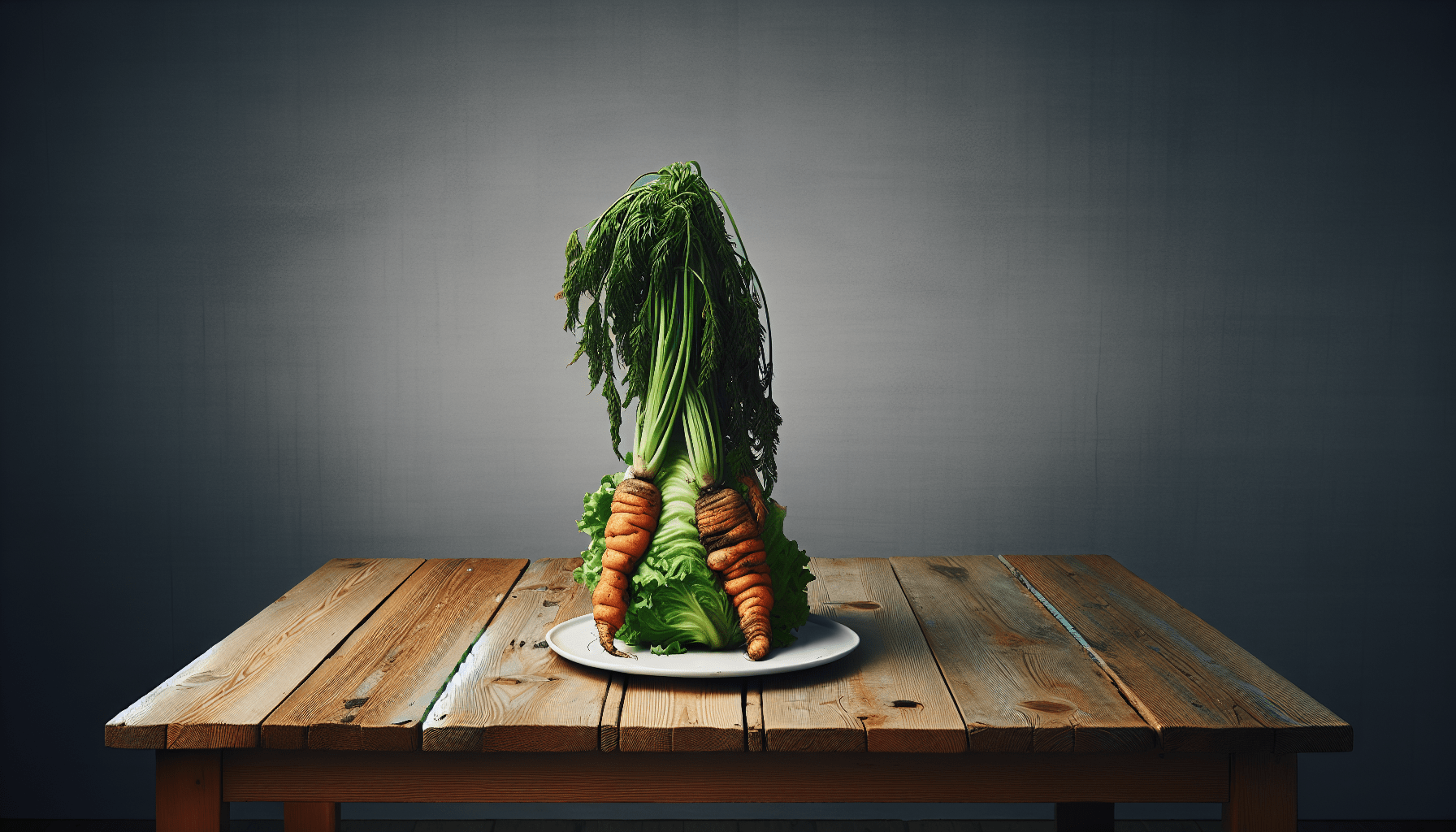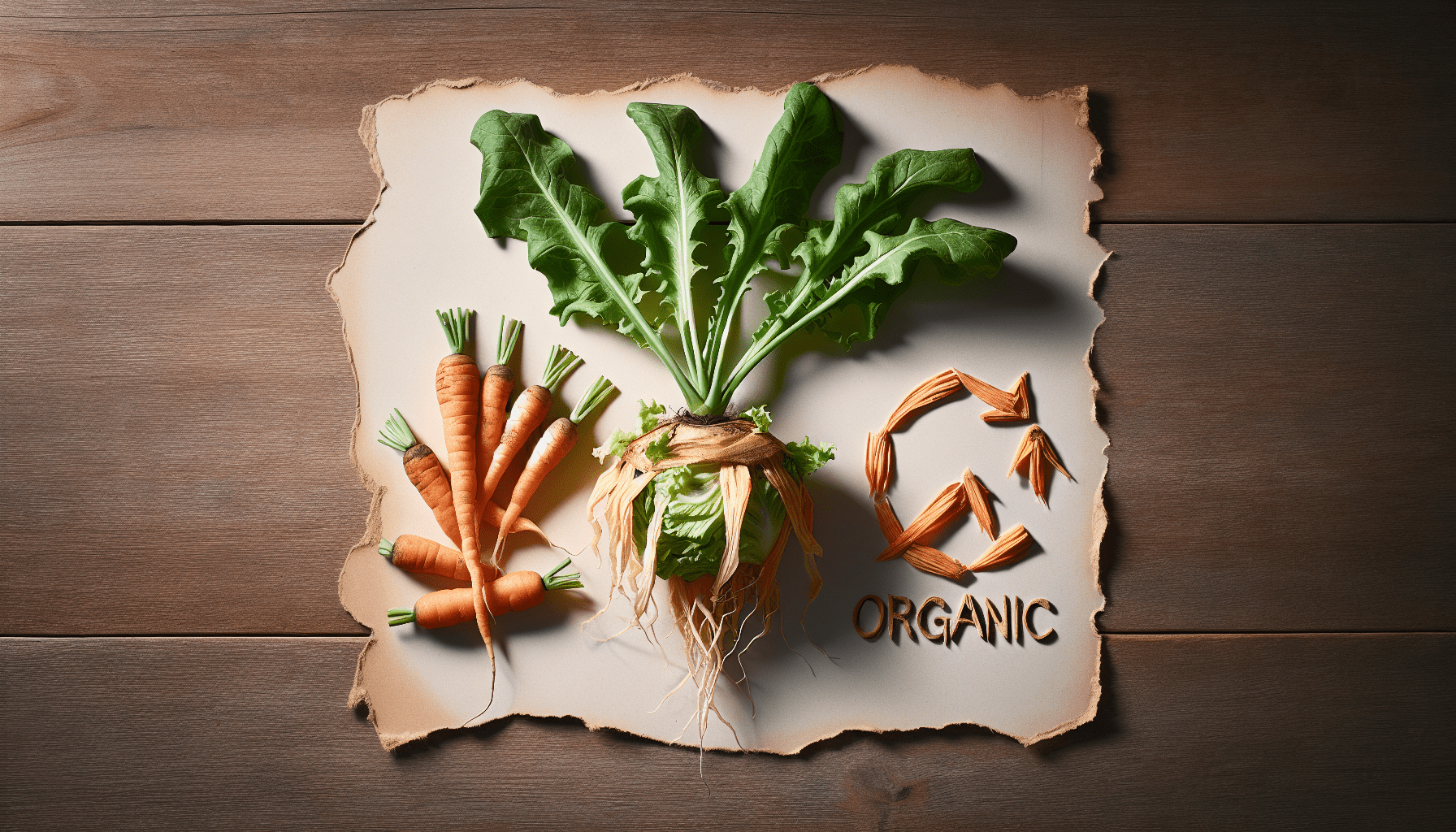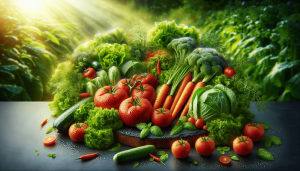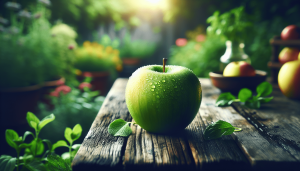Are there any downsides to eating organic food? This question is more relevant than ever as many of us strive for healthier lifestyles and sustainable living choices. While the allure of organic food, including the promises of better health, fewer pesticides, and more humane farming practices, is strong, it’s crucial to examine the other side of the coin. Let’s take a closer look at some potential downsides to eating organic food.

What Constitutes Organic Food?
Before we dive into the issues, it’s important to clarify what we mean by “organic food.” Organic food refers to crops and livestock that are grown and raised without the use of synthetic pesticides, fertilizers, genetically modified organisms (GMOs), or antibiotics. These food products must meet strict regulatory standards to be certified organic. But is the organic label worth its weight in gold?
Cost: A Heavy Price Tag
One of the immediate downsides that many of us notice is the cost. Organic food generally comes with a higher price tag compared to its conventional counterparts.
Price Comparison: Organic vs. Conventional
Let’s examine a few common items to see the difference in cost:
| Food Item | Organic Price (per lb) | Conventional Price (per lb) |
|---|---|---|
| Apples | $2.50 | $1.20 |
| Chicken Breasts | $7.00 | $3.00 |
| Broccoli | $3.00 | $1.50 |
| Milk (gallon) | $6.00 | $3.50 |
These approximate prices illustrate that organic food can be significantly more expensive. For families or individuals on a budget, this increased cost can be a considerable downside.
Limited Availability and Variety
Another challenge we face when opting for organic food is availability. Not every grocery store offers a wide selection of organic products, especially in rural or underserved areas. This lack of access can limit our choices, pushing us back towards conventional options.
Seasonal Limitations
Organic farming often relies on natural cycles and methods, making it more susceptible to seasonal constraints. This can mean that certain fruits and vegetables are only available at specific times of the year.
| Season | Common Organic Produce |
|---|---|
| Spring | Asparagus, Peas, Strawberries |
| Summer | Tomatoes, Zucchini, Blueberries |
| Fall | Pumpkins, Apples, Squash |
| Winter | Kale, Brussels Sprouts, Oranges |
These limitations mean that if we crave organic blueberries in winter, we might be out of luck—or forced to purchase imported versions, potentially raising costs and environmental impacts.
Nutritional Benefits: Are They Substantial?
One of the main reasons we turn to organic food is the belief that it is more nutritious. However, scientific research presents a mixed picture.
What Does Science Say?
Studies show that the nutritional differences between organic and conventional foods are often minimal. Both types generally offer similar vitamins and minerals. While some studies suggest that organic foods may have slightly higher levels of certain nutrients like antioxidants, the differences are not always enough to justify the higher cost.
| Nutrient | Organic (mg per 100g) | Conventional (mg per 100g) |
|---|---|---|
| Vitamin C | 30 | 28 |
| Antioxidants | 150 | 120 |
| Iron | 2.5 | 2.3 |
These minor variations indicate that, from a purely nutritional standpoint, switching to organic may not offer as many benefits as we might have hoped.
Pesticide Residue: Less, But Not Necessarily Safe
Organic foods are marketed as having fewer pesticides, which is generally true. However, this doesn’t mean they are completely pesticide-free. Organic farmers can use approved natural pesticides, some of which can still be harmful.
Natural vs. Synthetic Pesticides
Natural pesticides, derived from plants, fungi, or bacteria, are typically considered safer and more environmentally friendly. However, they are not without their own risks and may still affect human health.
| Pesticide Type | Source | Common Examples |
|---|---|---|
| Natural | Plants, Bacteria | Pyrethrin, Neem oil |
| Synthetic | Chemical Compounds | Glyphosate, DDT |
While organic food usually contains lower pesticide residues, it’s not accurate to assume it’s entirely pesticide-free or safer. Therefore, balancing this aspect with other factors is essential.
Environmental Impact: A Double-Edged Sword
Many of us choose organic food to reduce our environmental footprint. While organic farming practices can be more sustainable, they are not without drawbacks.
Land Use and Yield
Organic farming generally requires more land to produce the same amount of food compared to conventional methods. This lower yield can lead to deforestation and loss of biodiversity if more land is cleared to meet demand.
| Farming Method | Yield per Acre (bushels) | Land Required (acres) |
|---|---|---|
| Organic | 100 | 1.5 |
| Conventional | 140 | 1 |
Thus, while organic farming avoids synthetic chemicals, it may not always be the most land-efficient or environmentally friendly option.

Shelf Life: Shorter Durations
Organic foods usually have a shorter shelf life compared to conventionally-produced goods. This is because they lack synthetic preservatives that extend freshness.
Consequences of Shorter Shelf Life
Shorter shelf life can lead to higher food wastage, which negates some environmental benefits of organic farming. We might find ourselves buying food more frequently or dealing with spoilage, both of which can add to our expenses and carbon footprint.
Quality and Appearance: Not Always Superior
Many of us gravitate towards organic food, expecting superior quality and appearance. However, organic produce can sometimes appear less attractive due to natural farming methods.
Cosmetic Differences
Organic fruits and vegetables may have blemishes, uneven shapes, or smaller sizes compared to pristine-looking conventional produce. While these aesthetic differences don’t affect taste or nutritional value, they might make organic options less appealing.
| Quality Aspect | Organic | Conventional |
|---|---|---|
| Appearance | Natural, blemished | Clean, uniform |
| Taste | Varied, depends on freshness | Consistent |
This cosmetic variance can be a deterrent for some shoppers, who might equate appearance with quality.
Health Risks: Are There Any?
We often hear about the potential health benefits of organic food, but are there any associated risks?
Bacterial Contamination
Organic farming uses natural fertilizers like manure, which can increase the risk of bacterial contamination if not properly managed. Instances of E.coli and other pathogens have been reported, though they are not exclusive to organic farming.
| Health Risk | Organic Source | Conventional Source |
|---|---|---|
| Bacterial Contamination | Natural manure fertilizers | Synthetic fertilizers |
| Allergen Presence | Unprocessed or minimally processed | Processed foods generally |
While both organic and conventional foods carry risks, organic products can pose unique challenges that require careful handling and oversight.
Misleading Labels and Certifications
One of the pitfalls we face when choosing organic food is navigating through potentially misleading labels and certifications. Not all labels are created equal, and understanding them can be complex.
Decoding Certifications
Different countries have varying standards and certification processes for organic food. Even within a single country, multiple certification bodies can exist, sometimes leading to consumer confusion.
| Certification Body | Region | Standards Enforcement |
|---|---|---|
| USDA Organic | United States | Strict, federally enforced |
| EU Organic | European Union | Uniform across member states |
| Organic Farmers & Growers | United Kingdom | Independent, stringent |
These varying standards and enforcement levels mean that organic labels can vary significantly in their meaning and reliability, making educated choices critical.
Ethical Concerns: Are We Always Doing Good?
Choosing organic food is often seen as an ethical choice, supporting sustainable farming and better animal welfare. However, ethical considerations are more nuanced than they appear.
Animal Welfare
Organic standards generally promote better animal welfare, but this is not a given. The treatment of animals can vary widely between farms.
| Welfare Aspect | Organic Farms | Conventional Farms |
|---|---|---|
| Living Conditions | Generally better, more space | Often confined, less space |
| Antibiotic Use | Restricted, used only when necessary | Regular usage |
While organic practices typically involve better treatment, it’s important to research individual farms and producers to ensure the highest welfare standards are met.
Impact on Small Farmers
Organic certification can be prohibitively expensive and bureaucratic for small farmers. This can sometimes lead to only larger farms being able to afford certification, potentially marginalizing smaller, local producers.
Certification Costs
The costs and bureaucracy involved in obtaining organic certification can deter small-scale farmers from entering the market, potentially stifling diversity and innovation.
| Farm Size | Certification Cost | Impact |
|---|---|---|
| Small | Relatively high as a percentage | Barrier to entry |
| Large | More affordable due to scale | Easier access |
Thus, while organic certification aims to promote healthier and more ethical farming, it can inadvertently exclude small farmers from benefiting.
Conclusion: A Balanced View
As we have explored, the downsides to eating organic food encompass various facets, from cost and availability to nutritional benefits and environmental impact. Organic food is not without its virtues, but it’s important to approach the subject with a balanced view, considering both the benefits and the downsides.
We should weigh the pros and cons in the context of our individual circumstances, making informed choices based on our priorities and resources. By doing so, we can enjoy a diet that aligns with our values and needs while being fully aware of the complexities involved.



